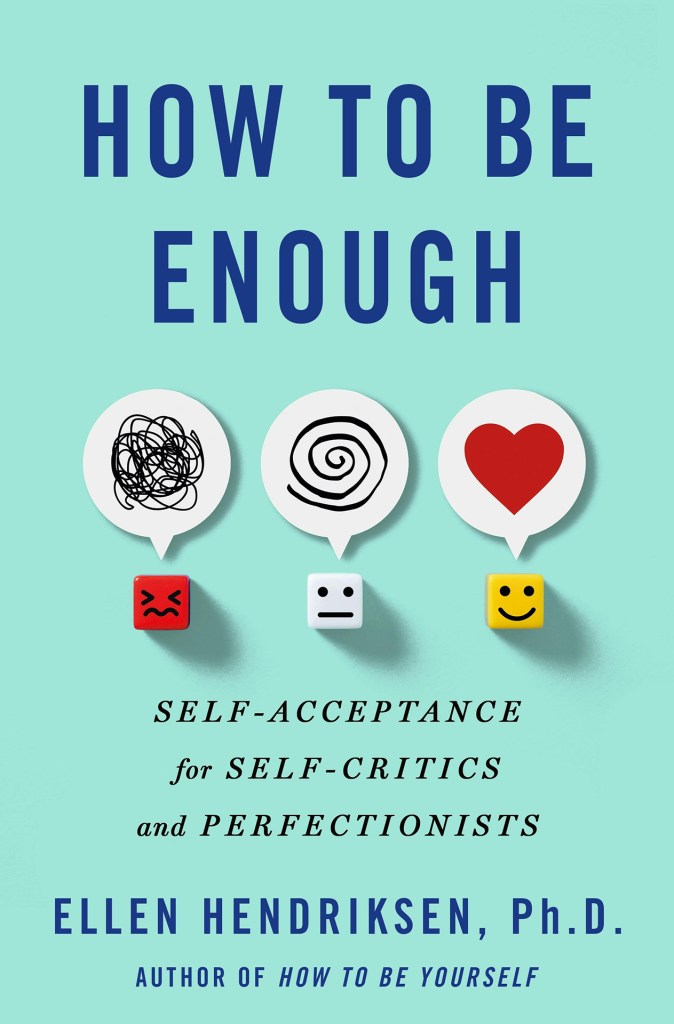
The lie that taints perfectionism
‘How to Be Enough’ author on the difference between admiration and acceptance, the power of ‘2 percent kinder,’ and why values should come before rules
Perfectionism has a dark side, says Ellen Hendriksen, a clinical psychologist and faculty member at Boston University, in her new book “How to Be Enough: Self-Acceptance for Self-Critics and Perfectionists.” In this edited conversation with the Gazette, Hendriksen, whose résumé includes a fellowship at Harvard Medical School, shares her insights on how to roll back tendencies that can lead to painful patterns of self-criticism and isolation.
When is perfectionism a healthy personality trait?
Perfectionism has a healthy heart because its core is conscientiousness, which is the tendency to be responsible and diligent, to do things well and thoroughly, to care deeply. Research has shown that conscientiousness is the No. 1 trait for both objective and subjective success in life. Those of us with perfectionist traits are often highly accomplished. It might manifest as excellent academics, job performance, sports, music, or things that we don’t usually think of as performance, like healthy eating, keeping our space organized, or always looking put together.

How can perfectionism become unhealthy?
Unhealthy perfectionism encompasses over-evaluation, which is the conflation of worth and performance, and harsh self-criticism. It is also unhealthy when we strive to be perfect to try to earn belonging and acceptance. Perfectionism tells us a lie: that we can connect, belong, and be accepted by being good at things through performance. But it backfires because when we perform superbly, we might earn admiration, but that’s different than acceptance. When we’re admired, we’re put on a pedestal, but that means we’re alone.
According to the work of Roz Shafran, Zafra Cooper, and Christopher Fairburn, clinical perfectionism is when our self-worth is dependent on striving to meet personally demanding standards, and we evaluate whether or not we’ve reached those standards in an all-or-nothing way. And if we define failure as not meeting standards, ours or those of others, what will often happen is that we either get overwhelmed or intimidated, and we then avoid our task. Or we’ll try, but we’ll fail, not because we were incapable but because our standards were unrealistic. Either way, self-criticism comes in and leaves us feeling inadequate or not good enough. On the off chance that we pull out all the stops and reach our standards, we’ll decide that our standards were not demanding enough in the first place, and the cycle begins again.
What other manifestations of perfectionism can be problematic?
It also can manifest as a focus on rules, or as a preoccupation with mistakes — either trying to avoid future mistakes or criticizing ourselves for past mistakes. It can also manifest as procrastination because the prospect of meeting our unrealistic standards can be paralyzing. It manifests as social comparison; we’re trying to answer the question, “Am I good enough?” Finally, it manifests as feeling distant or isolated in relationships because we engage in what’s called perfectionistic self-presentation, where we talk about what’s going well and hide what’s going poorly, which makes us come off not only as performative but also unrelatable.
“When we perform superbly, we might earn admiration, but that’s different than acceptance. When we’re admired, we’re put on a pedestal, but that means we’re alone.”
Are there links between perfectionism and depression and anxiety?
If we define failure as not meeting our standards, and these are rigid and unrealistic, we’re going to rack up a lot of failures. Then, repeated over days, years, and potentially decades, we may start to feel like failures. Over time, the two pillars of depression, which are hopelessness (i.e., “This will never get better”) and helplessness (i.e., “Nothing I try works”) settle in.
Regarding anxiety, as we’re struggling with over-evaluation — conflating our performance and our worth — our worth is never a settled question. Every event becomes a referendum on our character: It could be every meeting at work where we expect ourselves to make erudite comments, or exams where we expect ourselves to get an A-plus, or a social event where we expect ourselves to be witty and articulate, or at least not awkward and weird. So, it makes sense that we anticipate every potential performance with trepidation, anxiety, and worry. Forgive my grammar, but it’s when “Did I do good?” means “Am I good? and “I did bad” means “I am bad.”
In your book, you offer specific steps to deal with perfectionism. Can you expand on that advice?
I take the subtitle of the book, “Self-Acceptance for Self-Critics and Perfectionists,” quite literally. By self-acceptance, I mean that we don’t have to change our self-criticism at all. Instead, we can change our relationship to self-criticism. What I suggest is that we can treat our self-critical thoughts like we treat the music at a coffee shop. It’s still there, but we don’t have to sing along. In perfectionism, the heart of which is conscientiousness, we take things seriously, including our own thoughts and feelings. What I suggest is that we can take our self-critical thoughts a little less seriously. We’ll still have them, but we don’t have to treat them as if they are true and literal. We can just let them float by or pass through our mind without getting yanked around.
Another way to overcome perfectionist tendencies is to focus on values rather than rules. Those of us with perfectionist traits like to follow rules, and if there are no rules, we make up personally demanding rules. Values are never coercive, so you freely choose to follow them, and you’re likely willing to tolerate some discomfort to do so. For instance, the value of giving back might mean that you’re willing to give up your Saturday morning to volunteer to pick up trash on the beach rather than spending that morning relaxing at the beach. If we start focusing on values rather than rules, we can choose what is meaningful and important to us rather than following unrealistic rules.
I want to emphasize that becoming less perfectionistic isn’t as laborious as it may appear. Those of us with some perfectionism usually default to gut renovations and total overhauls, but we don’t have to work that hard. Small tweaks are enough. We can aim for being 5 percent more understanding of ourselves, allowing 1 percent mistakes, being 2 percent kinder to ourselves, and that is often enough.





